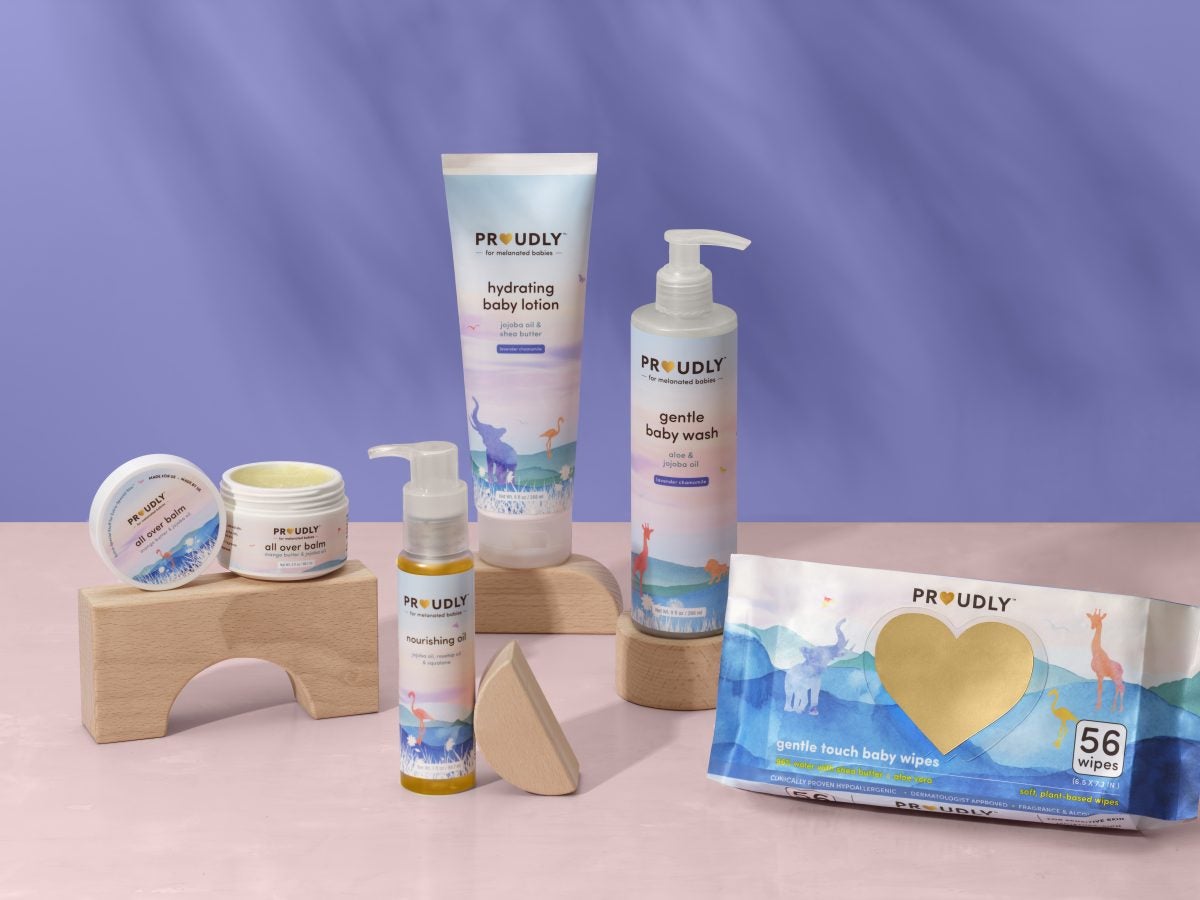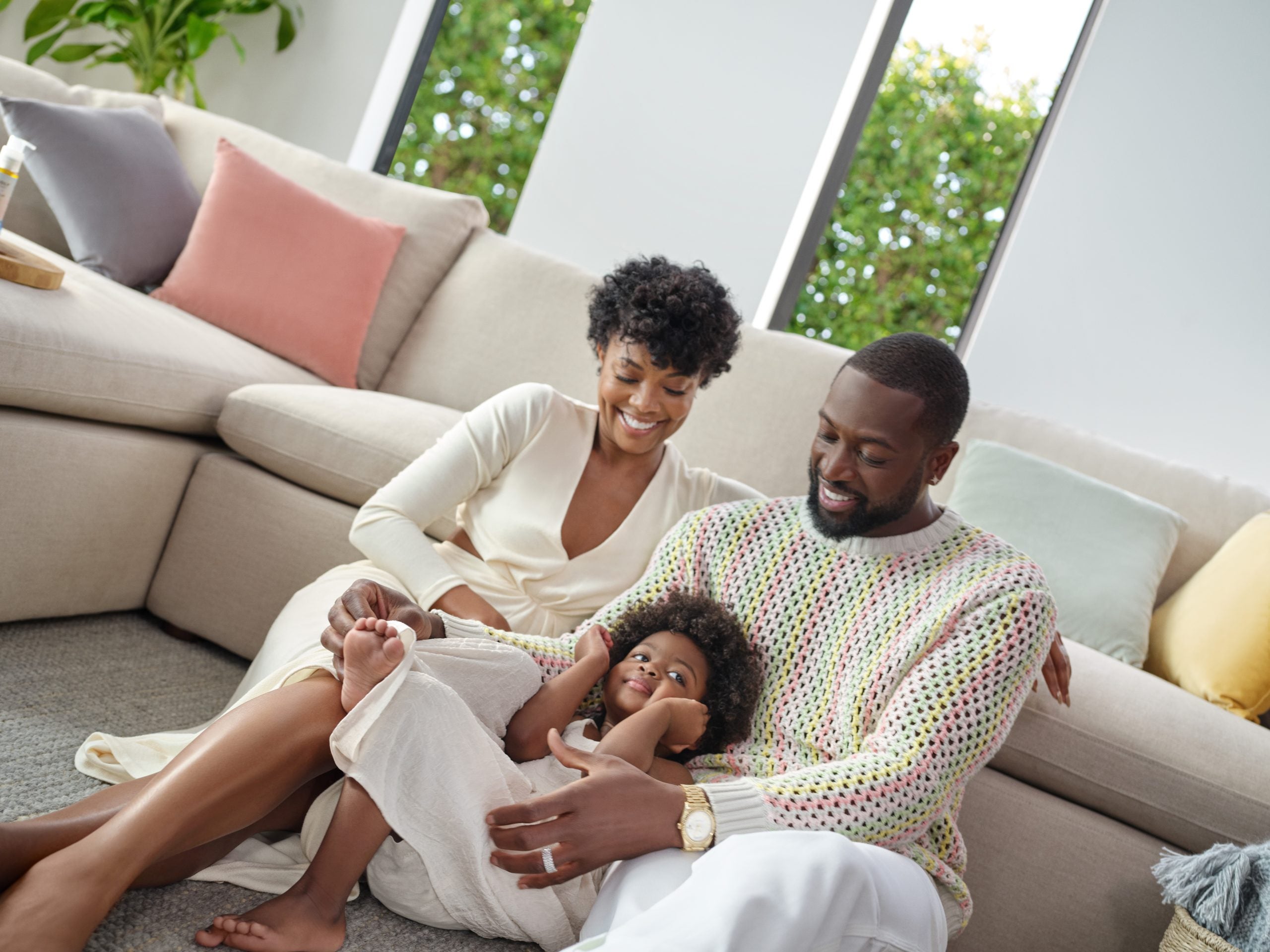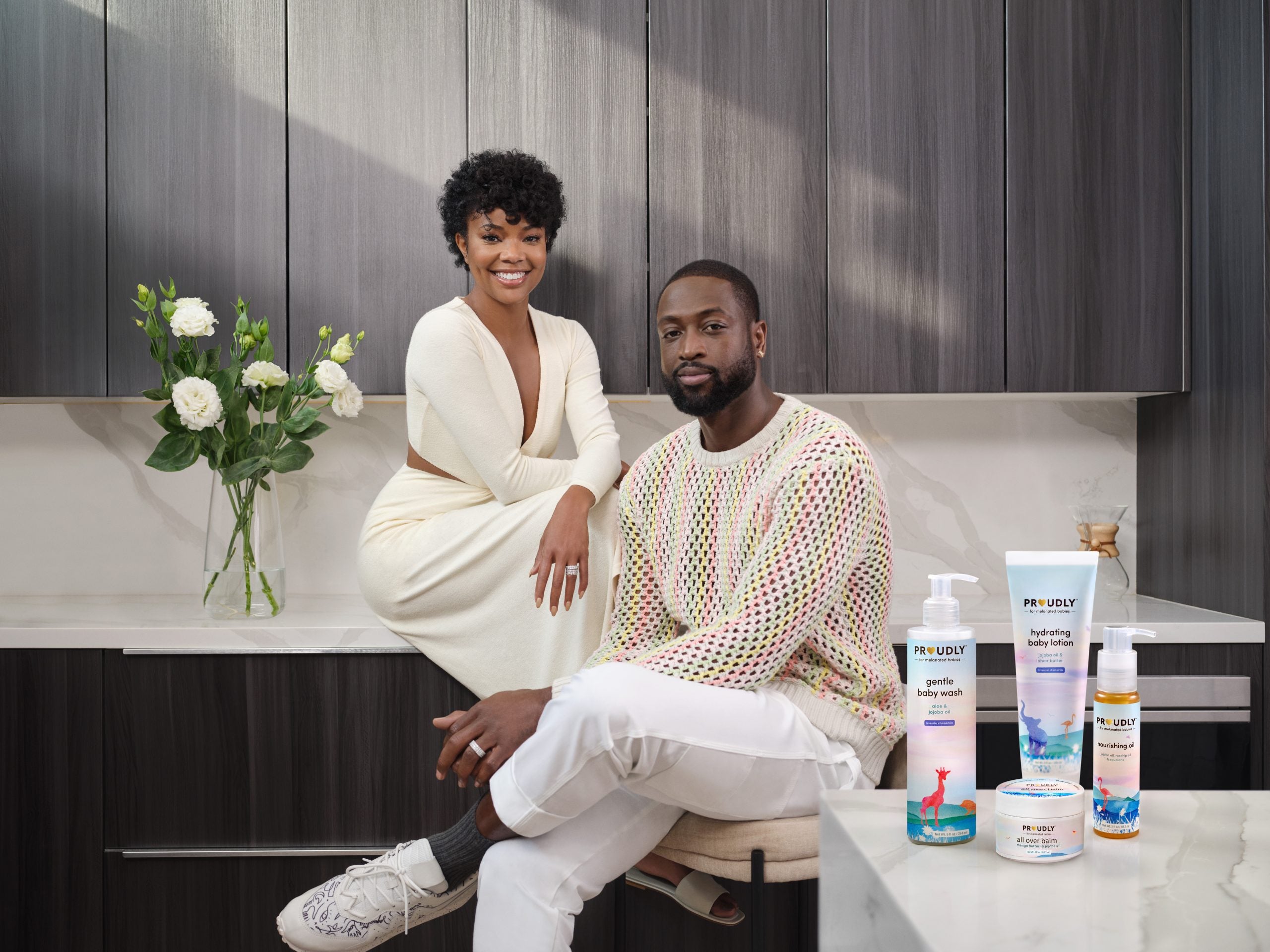
The origin story for Gabrielle Union and Dwyane Wade‘s new baby care line for children of color begins with a diaper rash. Not just any diaper rash, but according to Union, a “gnarly” one that her mom friends couldn’t help her figure out how to deal with.
“I called my Black mom friends, and they’re like, ‘No, that’s diaper rash,'” she recalls to ESSENCE. “I’m like, ‘But it’s not a rash.’ And they’re like, ‘Not on our kids.’ And then I called some of my white mom friends and they were like, ‘No, diaper rash is more of a rash.’ I was like, okay, there has to be a difference.”
She adds, “There has to be a correlation here between melanated skin and some of our issues that impact communities of color just way differently than the community that’s normally centered in these discussions when these kinds of products are being developed.”
Thinking about those needs, Union and Wade wanted to create something specifically for melanated babies that they simply couldn’t find.
“Once we looked into the market we realized that hey, it’s a void and it’s a big void and it needs to be filled,” Wade says. “We can’t keep piecing things together to try to make our kids feel comfortable or for even us as parents to feel comfortable with what we’re putting on their body.”
What the couple came up with, with the help of a skilled team including dermatologist Dr. Naana Boakye, is their baby skin care line, Proudly. The first rollout of products are available, as of today, on the Proudly website. They include a lavender chamomile body wash and hydrating lotion, their Nourishing Oil, the All Over Balm and the Gentle Touch Baby Wipes. With prices ranging from $2.99 to $11.99, the couple and their team are proud to bring a plant-based, accessible, affordable and effective line of products to parents of children with melanated skin. Hence the name. We talked to the couple, and Boakye, about the differences in the skin of babies of color, and why it was so important to address the needs that come with it through Proudly.

ESSENCE: Understanding what you learned from caring for Kaavia, what role did your own experiences as individuals of a darker complexion play into creating Proudly? I know growing up, it was either petroleum jelly or baby oil or some cheap lotion, and you made it work, even if it really wasn’t doing what it should for your skin.
Gabrielle Union: I think we all grew up being told that ash is not your friend and to walk outside and to be ashy is to say that you are not clean, is to say that you are not being taken care of. But we just used the products that we were given and there wasn’t a whole lot of thought about what was in the products. Are they actually even effective? Do they work on my skin? We just kind of used what our parents bought.
And as we all got older we were like, “This stuff isn’t even working and it’s expensive!” You know, when you first get your first paycheck and your parents were like, “Oh, you got to buy your own stuff.” You start thinking about efficacy and you’re like, it doesn’t even work. I have to find things for myself that actually work.
And so when Kaav was about to be born, a lot of our parents and grandparents and some relatives, they went with what they knew, but I was like, “Y’all know that’s like poison, right?” But again, you kind of only know what you know, and the more research and the more shopping and the more talking to folks we did, especially other parents of color, we were like, why don’t we just create our own thing? Let’s make sure that we are developing it with Black dermatologists and addressing our actual needs. Let’s figure out a way to make it accessible and affordable. Let’s just make the products of our dreams, and I mean, we stepped out on faith. But we also understood that if we are having these needs and we have all the resources in the world, other people are having these needs as well, these same issues. So how about we reach folks where they’re at?
Dr. Boakye, how different are the needs of melanated skin, especially when it comes to the sensitive skin of babies?
Dr. Naana Boakye: It’s interesting because a lot of brands don’t take into account the biology of melanated skin and melanated skin tends to be drier because we don’t have as many ceramides that are in the skin. In particular, Black skin, we tend to itch more intensely than our lighter skin counterparts.
So it’s really imperative that we, the product development team and I, were very selective and intentional about the ingredients that we picked in all the products. We really tried to pick plant-based ingredients. We leveraged them just because they’re safe, effective and we wanted to make sure that they truly hydrated the skin because our skin is our largest organ.
Dr. Boakye, Gabrielle, Dwayne, how did you decide what products to have?
Gabrielle Union: For the first product, our most pressing needs were skin related. As we go into warmer weather and that skin can get drier and drier, we thought this is like the perfect time to drop these products, get them in the hands of the folks that need them.
What was also interesting is we got the samples, we were using them along with us using them on Kaav, and then all of a sudden the samples would go missing. We had to buy the sample because everyone in the household, adults, all of the adults were like, “Oh, this really works.”
Dwyane Wade: I’m a sucker for a little calming spray, a little lavender calming spray.
Dr. Naana Boakye: I think from a dermatology perspective, I was thinking about different lifestyles. We’re all very busy. I know the Wades are busy, so sometimes you’re just going to grab the oil and just apply it from head to toe. Some people have a little bit more time, so they’ll use the balm and then the body cream, it just really depends on your lifestyle. So we wanted to make sure it was affordable, accessible, but also helped with everyone’s lifestyle.

On that note, why is it important to make sure it’s accessible for people to find and for them to be able to afford for their children? I feel like everything you guys do, Gabrielle, even with your hair care products and things like that, everything is meant to be affordable, cost-effective for everybody.
Dwyane Wade: For us, it’s never made sense to make something and to build something for our community and then out-price our community. And so for us, it’s like, yes, we want to make sure that we have the best of the best, but we know in there, there’s other ways we can figure out a way to keep costs lower. And so I think we try to do as good a job as we could through this process and as we try to do in all of our brands, as you said, to make sure that we do not go too far outside of the community that we are building companies for.
Gabrielle Union: Yeah. It’s actually kind of cruel to find a solution and then not make it accessible to the very people who need it.
As folks who didn’t come from much, that feeling of yearning of watching other people have… For me, it used to be like grape juice. We had grape drink and my friends had Welch’s and that yearning of feeling like I want something that is considered the best, but we just can’t afford it, we want to make sure that anything that we are talking about or doing is actually affordable and accessible. For us, to do it any other way it is just, you’re kind of bad people a little bit.
And what’s the inspiration for the name?
Dwyane Wade: I think as a team, Proudly was right in front of us for a while and we just kept skipping over it. But ultimately, I think the way that we all feel is in the name, right? We’re all proud of this company that we’re building. We’re proud of the faces that are behind this company, which is something that was very important for my wife and I.
And so to be able to have the reach and the resources to be able to go out, connect with the right individuals, connect with Ari Bloom and to be able to sit down and say hey, what would this look like if we started our own company? That’s why we here today. So we’re just super excited.






